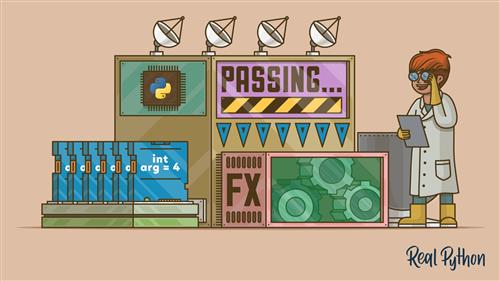Real Python – Pass by Reference in Python Best Practices with Howard Francis

MP4 | Video: h264, 1920×1080 | Audio: AAC, 44.1 KHz, 2 Ch
Genre: eLearning | Language: English | Duration: 16 Lessons (1h 17m) | Size: 181.9 MB
After gaining some familiarity with Python, you may notice cases in which your functions don’t modify arguments in place as you might expect, especially if you’re familiar with other programming languages. Some languages handle function arguments as references to existing variables, which is known as pass by reference. Other languages handle them as independent values, an approach known as pass by value.
If you’re an intermediate Python programmer who wishes to understand Python’s peculiar way of handling function arguments, then this course is for you. You’ll implement real use cases of pass-by-reference constructs in Python and learn several best practices to avoid pitfalls with your function arguments.
In this course, you’ll learn:
What it means to pass by reference and why you’d want to do so
How passing by reference differs from both passing by value and Python’s unique approach
How function arguments behave in Python
How you can use certain mutable types to pass by reference in Python
What the best practices are for replicating pass by reference in Python
Homepage
https://realpython.com/courses/pass-by-reference-python-best-practices/
